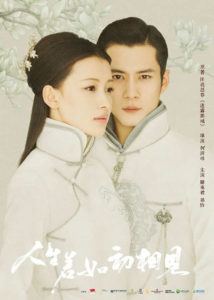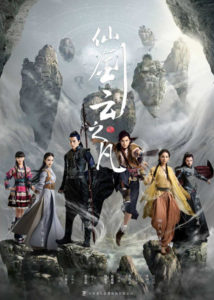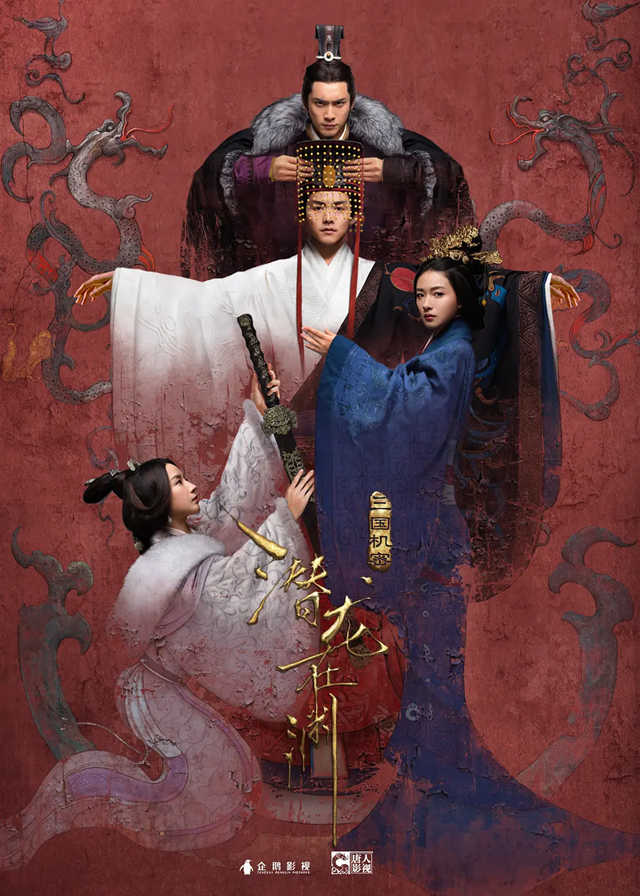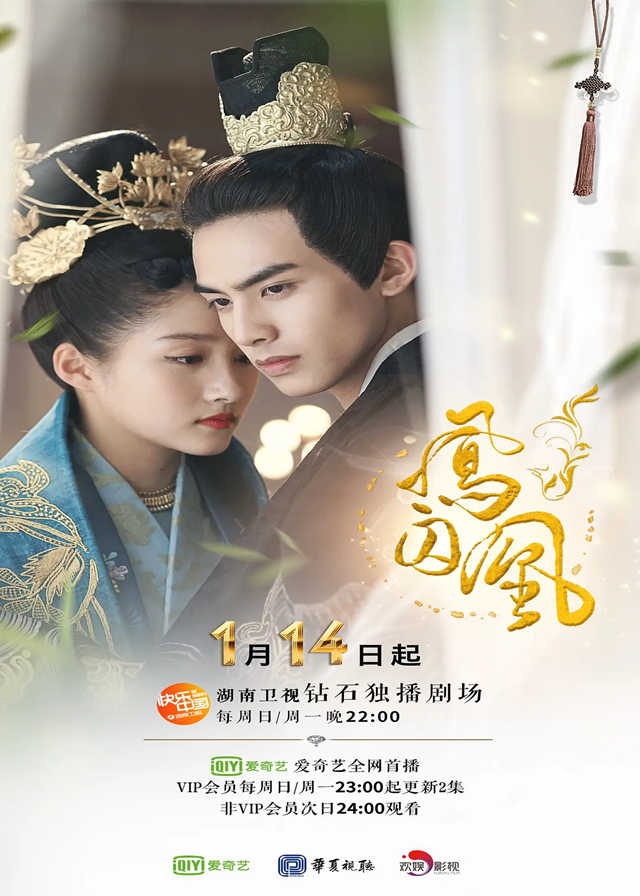Secret of Three Kingdoms Episode 52 Recap
> Secret of Three Kingdoms Recap
Cao Cao furiously confronted Xun Yu, demanding to know why their thirty years of friendship meant less to him than an imaginary Han Empire, especially after Xun Yu concealed Fu Wan's mutiny. Xun Yu explained that for years he had been caught between Emperor Liu Ping and Duke Cao, painstakingly maintaining a delicate balance to fulfill both their aspirations. He confessed to feeling afraid and unsure how to face the public.
Xun Yu then declared that they were now on different paths and could no longer plan together, asserting that the current Duke Cao no longer needed his past self. He bid Cao Cao farewell, telling him to take care. As Xun Yu walked away, Cao Cao clutched his sword in pain, realizing he had lost Xun Yu forever and questioning why all his most trusted aides had seemingly sided with the Emperor.
Later, Cao Pi informed Cao Cao that Director Xun Yu had committed suicide. A military tactician reported that Xun Yu had burned many manuscripts in his study before being found dead, sitting peacefully. Cao Cao was enraged and deeply distressed, shouting that he hadn't told Xun Yu to die, believing Xun Yu was taking revenge on him. Overcome with anger and grief, Cao Cao collapsed, prompting Cao Pi to urgently call for an Imperial Physician.
Meanwhile, Liu Ping stood vigil over Fu Shou's coffin. Sima Yi arrived with men, stating that he had to escort the Empress for burial, leaving Liu Ping helpless to stop them. Liu Ping gently addressed Fu Shou’s body, promising her that they would be together in her coffin after a hundred years and asked her to wait for him before her body was carried away. Sima Yi then informed Liu Ping that Xun Yu had died.
Liu Ping immediately accused Sima Yi of orchestrating it by exploiting Fu Wan's death. Sima Yi recalled his past conversation with Fu Wan, where he had instructed Fu Wan to write incriminating letters to Director Xun Yu and Yang Biao, inviting them to join a supposed plot.
Sima Yi explained to Fu Wan that Xun Yu, caught between loyalty to Cao Cao and guilt towards the Han Empire, would not expose the plot, thus the letter would become evidence of his crime upon Fu Wan's death.
Sima Yi revealed his intention was to "borrow the hands of Cao Cao to kill them," reasoning that killing two prominent leaders of the empire's aristocratic families would alienate Cao Cao from the gentry, preventing him from dominating the Central Plains or replacing the Han Dynasty. When Fu Wan asked whose man he truly was, Sima Yi declared himself "a man seeking vengeance."
Back in the present, Liu Ping angrily confronted Sima Yi, reminding him that Xun Yu had consistently helped them. Sima Yi, however, argued that a living Xun Yu had exhausted his usefulness, and his death held more value, as it would sever Cao Cao's ties with many of his strategic advisors, trapping him under the Han Imperial Family's reign. Sima Yi insisted his ultimate goal was to save all the people of the empire, not just the Han Dynasty.
Liu Ping, appalled, declared their paths fundamentally different, stating he could not sacrifice millions of lives for a victory against the Cao clan. He told Sima Yi to use his own methods to control the future of the Cao family. Sima Yi thanked Liu Ping and then bid him farewell, advising him to take care and to persist on his chosen path, which he described as a solitary battle against numerous obstacles.
Liu Ping watched him leave, silently echoing Sima Yi's parting words. The unjust death of the great Confucian scholar Kong Rong sparked outrage among the empire's literati. A group of scholars openly protested in the streets, lamenting that Kong Rong had died from a fabricated crime, his corpse exposed, and his descendants innocently killed.
They questioned the justice and teachings of sages in Xudu, declaring that if officials were too afraid to collect his body due to treacherous subjects, they would do so themselves, even if it meant sacrificing their own lives for righteousness. Liu Ping, Cao Cao, and their retinue, disguised as common folk, observed this scene. Cao Ren asked if this protest was ordered and suggested making an example of the scholars, calling them attention-seeking.
Liu Ping countered, asking if Cao Cao's true nature was to extinguish all justice in the world. When Cao Ren branded them as rebels, Liu Ping questioned how they were rebelling. Recognizing the popular sentiment, Cao Cao relented, instructing Cao Ren to let the scholars be, and they left the scene. Liu Ping later personally paid respects at Xun Yu's memorial.
The Xun family showed him great warmth, and Liu Ping read a poem, expressing his fortune in having such a subject and confidante, and vowing not to disappoint Xun Yu's desire for national peace. Cao Cao also arrived to mourn, reflecting on their more than two decades of knowing each other better than anyone else. He hoped Xun Yu's soul in Heaven would watch his future accomplishments.
Xun Yu's son then requested to escort his father's coffin back to Yingchuan for three years of mourning and asked that other clan members be allowed to remain in Xudu, as they were reluctant to travel far. Cao Cao, disappointed, noted the silence of the other clan members, asking if none of them wished to accompany him to Yecheng.
Liu Ping stepped forward, advocating for the Xun family, reminding Cao Cao that one should not force aspirations and each person has their own. Cao Cao, seeing the situation, agreed to their request. He then confronted Liu Ping, stating that the Emperor had won, successfully turning all of Cao Cao's most trusted people against him.
Liu Ping, in turn, urged Cao Cao to leave Xudu as soon as possible, warning that he could not guarantee what might happen if Cao Cao remained, as no one wished for Xudu to be engulfed in the flames of war again. After Liu Ping departed, Cao Cao's debilitating headache returned. Cao Cao's headaches intensified, with imperial physicians unable to offer a cure, explaining that his illness had deeply affected his brain and couldn't be treated with simple remedies.
In his agony, Cao Cao demanded they find Hua Tuo, the divine doctor. His wife gently reminded him that he had killed Hua Tuo ten years prior, a fact Cao Cao had forgotten, leading him to lament that he had killed all the useful people around him. Enduring the severe pain, Cao Cao spoke to his daughter, Cao Jie.
Though she offered to accompany him to Yecheng, he confessed that Heaven hadn't given him enough time to replace the Han Dynasty and make her a carefree princess. He still wished to fulfill her dream and proposed she marry Liu Ping and become his Empress, arguing it would be for her own good and the good of the world, and would allow him to avoid further bloodshed.
Despite Cao Jie's initial reluctance and desire not to see Liu Ping again, Cao Cao insisted, revealing his weariness of killing and his belief that this alliance would bring relief, even if it meant suffering for them both. Cao Pi, acting on his father's behalf, informed Liu Ping that Cao Cao would withdraw from Xudu within a month as promised, transferring his base to Yecheng.
As a condition for this cooperation, Cao Pi proposed a marriage alliance between the Liu and Cao clans. He explained that Cao Cao acknowledged he couldn't defeat Liu Ping, and the Han Dynasty was too weak to destroy the Cao forces, making an endless conflict too costly. This marriage would pacify stubborn old subjects against Cao Cao and ensure the Cao forces restrained themselves, allowing the Han Empire and Yecheng to act independently and as equals.
When Liu Ping bitterly reminded him that this "partnership" had cost his wife's life, Cao Pi acknowledged his father's position required tough decisions and sacrifices, but pleaded that Liu Ping not vent his anger on Cao Jie, who was innocent. During their conversation, Cao Jie entered. She dismissed Cao Pi, wishing to speak with Liu Ping privately.
She expressed deep regret, believing that if she had destroyed Guo Jia's pouch earlier, none of the subsequent tragedies, including Empress Fu Shou’s death, would have occurred. Overwhelmed by self-blame, she proposed to marry Liu Ping, even if it were only a marriage in name, as a way to defuse the conflict between him and her father and to guard him on behalf of the late Empress.
Liu Ping, initially unwilling to let her sacrifice her youth and happiness, argued that this was not her fault and she deserved a normal life. However, Cao Jie insisted, stating she was doing this willingly to placate the war, and asked him to fulfill her wish. Seeing her resolve, Liu Ping agreed to her request. A grand enfeoffment ceremony was held, formally conferring Cao Jie as the Empress.
As the decree was read, praising her aristocratic background, gentle conduct, and suitability to lead the six palaces, Cao Cao watched his daughter from below, finally leaving with a sense of relief and peace. Sima Yi arrived at a secluded house he had previously acquired, finding Fu Shou, dressed in white, waiting for him. He asked if she had grown accustomed to living there, to which she replied it was more carefree than the palace.
Sima Yi then commented that Liu Ping had ultimately made the correct decision. He recalled the critical moment when Liu Ping, unwilling to sacrifice the lives of numerous young men for Cui Yan’s plot, refused to let Fu Shou die. Instead, Liu Ping had given Sima Yi a special medicine, capable of inducing a death-like state for several days, originally intended for his own abdication, and instructed Sima Yi to use it to save Fu Shou.
Sima Yi, distrustful, questioned why Liu Ping would entrust him, his greatest hater, with such a vital medicine, fearing he might sabotage the plan or use real poison. Liu Ping, however, expressed his trust in Sima Yi, knowing his older brother's character, and stated that this task would help Sima Yi become a trusted aide of Cao Cao, fulfilling Sima Yi's desire to join Cao Cao's inner circle.
Despite Sima Yi's assertion that no one could manipulate him, not even the Emperor, Liu Ping firmly told him to listen this one time. Sima Yi had reminded Liu Ping then that if Fu Shou lived, they could never truly be together as long as Cao Cao was alive. Liu Ping had accepted this, acknowledging that such yearning without meeting was Sima Yi's revenge and his own deserved punishment.
Fu Shou laughed, recounting how she found Liu Ping's serious demeanor amusing, though Sima Yi remarked that Liu Ping, despite his tough exterior, would trade ten imperial thrones just to see her. When Sima Yi asked if she truly intended never to reveal her whereabouts to Liu Ping, Fu Shou explained she didn't want him to bear any more sacrifices.
She also conveyed that she understood her father Fu Wan's actions and didn't hate Sima Yi for his involvement, though she acknowledged Liu Ping would likely not easily forgive him. Sima Yi then informed her that he would be accompanying Cao Cao to Yecheng and was setting out immediately. Fu Shou expressed concern that with his departure, Liu Ping would be left without any close allies.
Sima Yi then dropped the news that Liu Ping had conferred an empress that day – Cao Jie. Instead of jealousy, Fu Shou reacted with poignant sadness, wondering if the sacrifice this time was the glorious youthful years of a young lady. Sima Yi lightly teased her for becoming sentimental over Cao Cao's daughter and her husband's new wife, suggesting she had been with Liu Ping for too long.
When asked about himself, Sima Yi stated that he and Liu Ping had grown up together, and neither could ever truly change the other. As Sima Yi prepared to leave, Fu Shou walked him out, asking if the secluded house had originally been intended for Tang Ying. Sima Yi confirmed it, explaining he had bought and renovated the scenic house, located not too far from the capital, hoping to surprise Tang Ying with it once the Han Imperial Family succeeded.
He even made a lighthearted remark about how agonizing it would have been for him, a late sleeper, to commute to the capital from such a quiet place every day. He then told Fu Shou that living there on her behalf was fitting, as Fu Shou had been Tang Ying's only friend.
Sima Yi then paid his respects at Tang Ying's memorial, vowing to live on and seek vengeance for her, and to watch on her behalf how the chaotic world would finally end. He then departed. Cao Cao was conferred as the Duke of Wei and subsequently left Xudu in the 18th year of Jian'an (A. D. 213), establishing the capital of his Wei Prefecture in Yecheng and setting up a feudal state with numerous officials.
This marked the formal separation of the long-entangled forces of Cao Wei and the Han Dynasty, with each obtaining their own freedom. Six years later, Fu Shou had fully adapted to life as a commoner. While buying vegetables at a market, she overheard the vendor discussing the prevailing peace in Xudu. The vendor praised the Emperor for loving his citizens, imposing fewer taxes, and accepting refugees, even providing them with food, an unthinkable act for an emperor before.
They contrasted this with the ongoing wars and constant recruitment of troops in Shouchun and Yecheng, making citizens elsewhere envious of Xudu's tranquility. Fu Shou quietly bought her vegetables, a serene figure in a world that had found a fragile peace.












